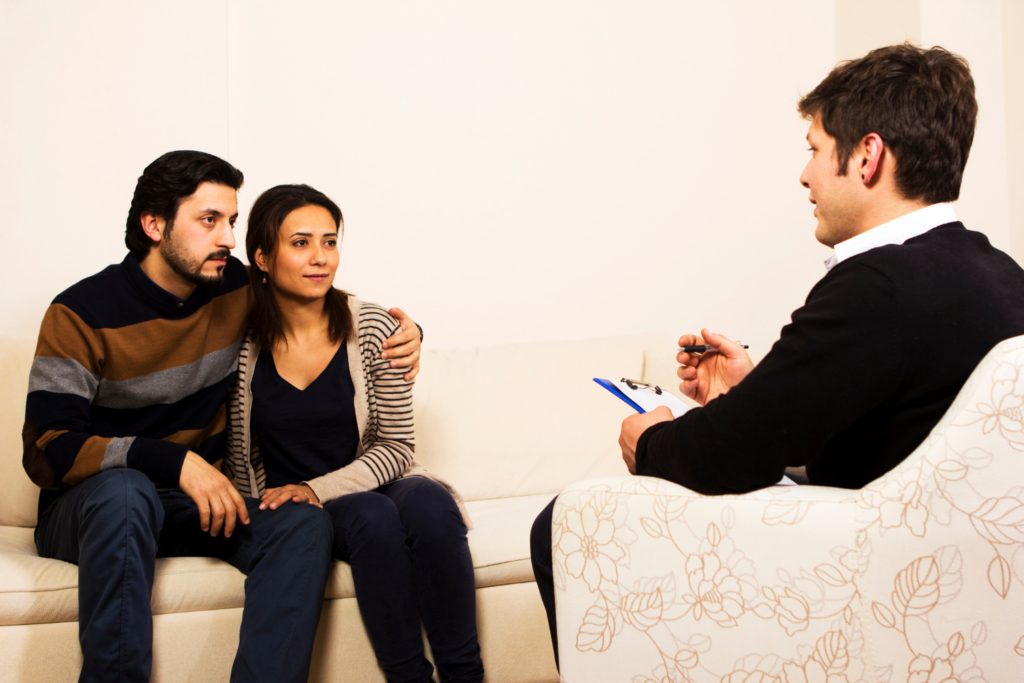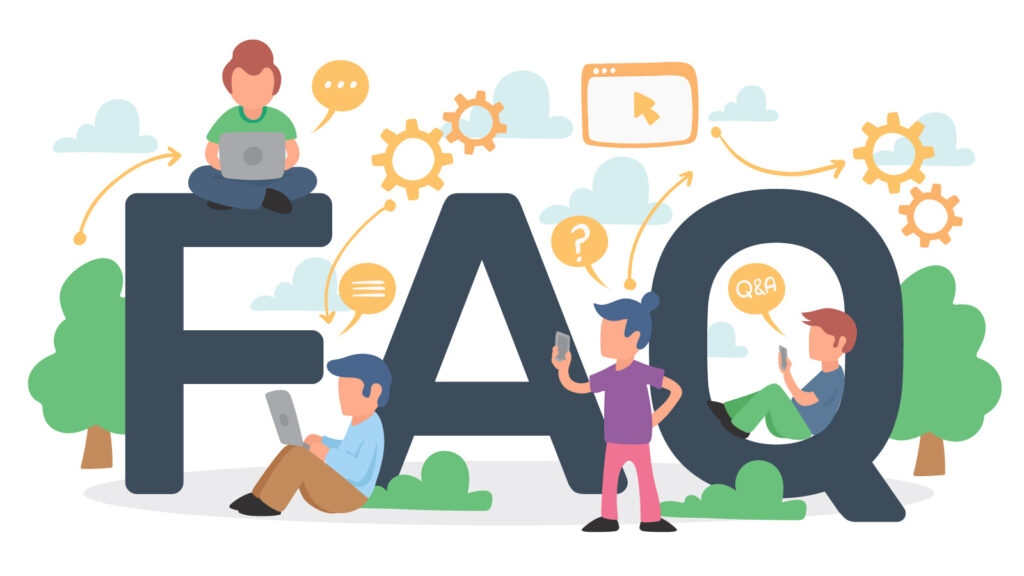Marriage & Couple Counseling

Marriage and couple counseling provides a dedicated space for couples to address relationship issues, enhance communication, and strengthen emotional bonds under the guidance of a trained therapist. It focuses on improving understanding, resolving conflicts, and rebuilding trust through effective dialogue and therapeutic techniques. Therapists help couples identify patterns of behavior, explore underlying emotions, and develop practical strategies to promote intimacy and mutual support. Whether facing challenges such as communication breakdown, infidelity, or life transitions, marriage counseling offers a supportive environment to navigate difficulties and cultivate a healthier, more fulfilling relationship. The process aims to empower couples with tools to sustain long-term harmony and connection, fostering resilience and mutual growth in their partnership.
Marriage and relationship issues
- Religious and faith related issues
- Unhealthy approaches to communication and/or lack of communication
- Sexual dysfunction and/or sexual problems related to physical & psychological needs
- Trust issues, infidelity, or other betrayals
- Financial issues
- Extended family issues (in-laws)
- Problems related to children and parenting
- Separation or divorce
- Mixed or blended family issues
- Cultural Issues
When is it time to get help?
Generally, the sooner you seek help for any marriage or relationship concerns, the better. Unhealthy patterns of communication or behaviour get harder to re-set the longer they’ve been established. Although some go away, many problems tend to get bigger with time – so the sooner you get support and direction, the easier it is to solve those problems. If you and/or your partner are feeling unfulfilled, trapped, unheard, lonely, neglected, considering an affair or if you simply want to have a healthier relationship – please connect with one of our specially trained therapists.
Marriage and relationship concerns treatment methods
There are several treatment methods that are effective in helping couples overcome problems and improve the quality of their relationship. Of course, there’s no one-size-fits-all therapy for couples just as no two couples are alike – so your therapist will talk with you to determine the best treatment method. These may include:
- Gottman relationship check up is a questionnaire is composed of 480 questions about friendship, intimacy, emotions, conflict, values, and trust, as well as parenting, housework, finances, individual areas of concern, and more. It’s designed as a tool for use by the therapists at Insight Psychological in a therapeutic setting.
- Gottman couples therapy believes that couples need to be able to work on becoming better friends, learn to manage conflict, and create ways to support each other’s hopes for the future. The foundation of Gottman couples therapy is based on Dr. John and Julie Gottman’s 40+ years of clinical experience and research that is based on interventions and exercises that are structured, goal-oriented and scientifically based.
- Emotionally focused therapy is based on observations and experience. It looks at emotions and emotional intelligence, which helps support stronger and more secure relationships by helping better understand how our actions impact others, and how our emotions drive our interactions.
- Crucible approach therapy. Crucible® Therapy or the Crucible Approach is an integrated therapeutic approach that started out as an integrated treatment for sex, intimacy, and relationship problems. With couples, the therapist will ultimately push them outside of their comfort zone and develop new comfort zones by becoming more emotionally mature.
What will I get out of treatment with Insight Psychological?
If you are committed to improving your relationship, we can help you make your relationship the best it can be! You can learn better and effective ways to communicate, break old habits and patterns, and rediscover your partner to feel excited and optimistic again. Note: If you are the only one who is interested in attending therapy (which is not uncommon), you can attend sessions alone and still see benefit. “Individual for couples” work affects change just like effective parenting training does not require the children to be present to make effective change. You may also feel better overall, and your partner may be inspired by your self- improvement, growth, and development.
Insight has many therapists that can support you on this journey. You can book online or contact us to set up an appointment for counselling – in-person, online (video), or telephone.

Frequently Asked Questions
Counselling is a process between an individual and their counsellor that helps the individual to overcome difficulties and change maladaptive or unhealthy emotional, behavioural or cognitive aspects. This leads to a more adaptive pattern of thought and behaviour and a satisfactory change in the individual. Thus, Counselling is an enabling process that provides alternative ways to think, feel and behave in a healthier manner.
It is a common myth that, Counselling is only for people who are very disturbed. In fact, counselling can be helpful for any person, who can think, feel and behave appropriately most of the times but sometimes, may require help to enhance, develop, change or improve his/her condition. Students, working professionals, couples, parents may seek counselling for different issues.
When a person experiences negative emotions such as sadness, hopelessness, frequent worrying, difficulty in daily functioning for a significant period of time and cannot cope with it, then they can visit the Counsellor by taking a prior appointment. Some of the concerns with which people approach a counsellor are prolonged sadness, worry, anxiety, indecisiveness, anger, lethargy, procrastination, addictions and so on.
Any concern or experience, from an everyday concern to a unique circumstance or situation can constitute a reason to seek help from a Counsellor. Counselling addresses concerns across many life stages, events and circumstances.
Common reasons why students have sought counselling include:
- Relationship difficulties such as frequent fights, extramarital affairs, sexual worries, loss of intimacy
- Academic problems, procrastination, difficulty keeping to deadlines, low confidence
- Distress related to peer relationships, dealing with rejection
- Illness, grief and loss
- Life transition and adjustment issues
- Personal growth and understanding
- Addiction related issues
- Sexuality and gender identity
- Anxiety, Depression, Stress
- Decision related to marriage and commitment
- Separation or divorce
- Loneliness
- Violence and abuse in relationship
Only your counsellor would know of this. For all those who seek counselling, confidentiality is maintained regarding their personal information, which is not disclosed to any person, group or authority without his/her consent. In case of emergency such as, when someone is feeling overwhelmed and maybe suicidal, the person listed as their emergency contact will be reached.
Sometimes a counsellor may share details about a session or a client with a team member or their supervisor to gain clarity, and seek suggestions on the way forward. This is done without divulging personal details of the client such as their name, course in which they are studying etc. It is done for enhancing to quality of the service and for the benefit of the client. This is termed as shared confidentiality.
Counselling is a process in which the individual and the counsellor work towards a common goal which is beneficial for the individual. This can lead to a satisfactory and beneficial change in the thoughts, feelings and behaviour of the individual. It can enable them to cope with unmanageable situations in the best way possible. The process helps to enhance the overall well-being of the individual.
The duration of the Counselling process differs for each individual. It depends on the complexity of the concerns that the individual has and his/her participation in the process. On an average, counselling sessions can extend between 2-6 sessions.
